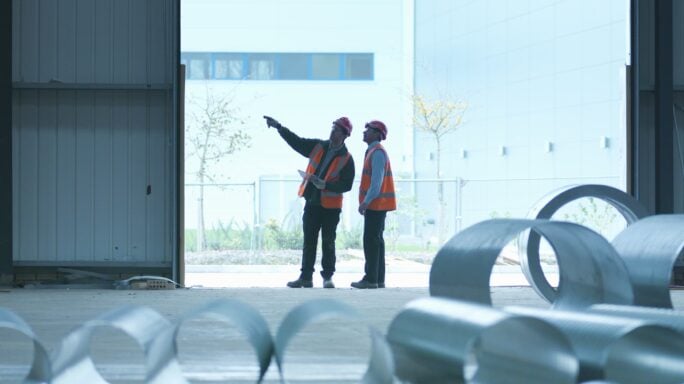Construction
6 tech tools powering happier and more productive construction teams
The right technology provides construction firms with the insights to their business, while powering productive and happy teams.

The last 18 months have changed the way our industry works, and construction firms have adapted to this new landscape by increasing remote working capabilities. However, in an industry that is slower to embrace change, particularly new technologies, there is still a perception that remote workers cannot be as productive as those in the office.
Productivity is not dependent on where employees work, but rather on having the right technologies to stay connected, work in new and better ways, and enable collaboration between teams.
The right tools, from back-office accounting to mobile field apps, provide a construction firm with the insights needed to stay on top of their business. Specifically, efficient use of technology improves financial insight, business visibility, workforce management, and mobility, and helps firms overcome common challenges.
Let’s take a closer look at which tools can impact these areas and help teams become more productive.
1. Integrated or cloud-based accounting solutions
Many firms realize the need for greater financial insight and have moved away from manual processes to the automated benefits provided by technology.
With an integrated accounting solution, construction businesses have more visibility and control over all project financials. A cloud-based solution provides even more significant gains, including real-time updates, greater collaboration, and anytime, anywhere access to project-critical information.
The monthly close usually provides insight into current standings, but in today’s world, looking back is not enough. Technology is transforming the accounting profession with advancements like continuous close, predictive analytics, and transaction-outlier detection.
More and more, the monthly close is becoming obsolete. Technology is enabling instant financial insights and empowering CFMs to predict what will happen in the future.
2. Better reporting
Full business visibility comes with solid reporting. A reporting system that can synthesize data into meaningful summaries, field reports, and financial statements is critical for identifying and solving problems.
3. Automated alerts and monitoring
Construction companies dig through a lot of data to get the right information to the right people at the right time. From documents and emails to plan revisions and change orders, it can quickly become difficult to keep up.
An automated alert system tied to accounting and operations software provides immediate and actionable information by sending a text, email, or desktop notification. By monitoring this data and finding certain conditions are met, this system can quickly notify teams of any issues.
4. Dashboards that efficiently analyze your KPIs
As mentioned, managing your data can be overwhelming and analyzing that data is crucial to improving business performance. This is where dashboards that analyze and display your KPIs step into place. A robust dashboard should display all your important metrics, and more importantly, it should clearly, quickly, and compellingly provide intuitive access to critical project and accounting details.
5. Predictive analytics
Predictive analytics tools use several advanced features, like data mining, modeling, and machine learning to allow systems to make predictions based on past results. With today’s landscape, having this type of technology will go a long way towards evaluating business and performance trends, enabling businesses to better manage projects and improve forecasting.
6. Mobile apps that enable remote work
Mobility was already important for construction firms as teams working both in the field and in the back-office need access to project-critical information anytime, anywhere, but it is more crucial now than ever.
While more back-office staff are working remotely, contractors are adjusting to new ways of working on job sites. With limitations on the number of people allowed onsite, teams need the ability to collaborate with ease. Cloud-based solutions and mobile apps streamline projects, increase efficiency, improve collaboration, and keep all teams in sync.
Businesses can gain remote access to data by integrating their on-premises solutions with mobile apps. Making small changes, such as utilizing workforce management apps, improves business efficiency and makes a significant impact on day-to-day employee workload.
Start the mindset shift needed for healthy work environments
The benefits of efficiently using technology cannot be overstated, but for a business to fully realize its potential, all parties must embrace technology and adjust their mindset when it comes to remote work.
It is important for teams to consider overall productivity, which areas remain challenging, and what could be done to simplify and improve current processes. Only through their input and buy-in will your teams make efficient use of these technologies.
It is crucial for any construction firm to equip its staff with the tools needed to work as efficiently as possible. Healthy work environments thrive when the individual worker thrives, and the pandemic has taken a toll on this industry. To ease this toll, mental health among workers must be treated as importantly as job safety.
Happiness and productivity are not mutually exclusive; employees can be happier and more productive. And in the end, that is a win for everyone.







Ask the author a question or share your advice